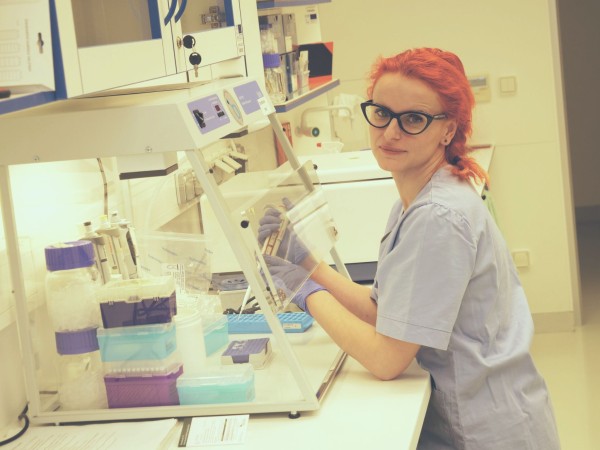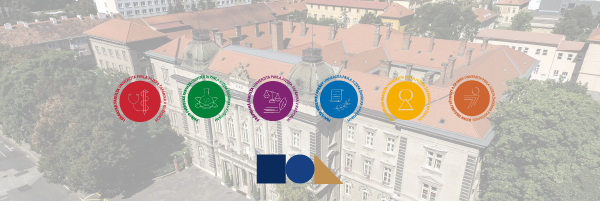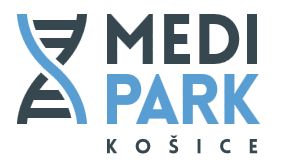Cross-border cooperation of four parties – three universities and one start-up – brought significant success in the field of technology transfer to Pavol Jozef Šafárik University in Košice at the end of 2022. The agreement will enable the introduction of a new technology that can contribute to the success of artificial insemination.
The problem of infertility affects more than 48 million couples worldwide every year. It mainly affects women over 40, whose chances of getting pregnant, including through artificial insemination, decrease with age. The results of scientific research at Pavol Jozef Šafárik University in Košice, Comenius University in Bratislava, Masaryk University in Brno and the subsequent financial contribution of the Czech holding group FABA Capital will make it possible to bring into use a new technology that can contribute to the success of assisted reproduction using the IVF (in vitro fertilisation) method.
IVF is one of the most effective infertility treatments to date. The key to a successful process is the interplay of many circumstances, including the selection of a suitable embryo for transfer into the uterus. The new technology, protected by a patent application, identifies new miRNA molecules useful for prediction. “Simply put, the identified molecules predict the current readiness of women and the quality of the embryo suitable for the artificial insemination process,” explains Associate Professor Miroslava Rabajdová from the Institute of Medical and Clinical Biochemistry, Faculty of Medicine, University of Applied Sciences in Košice.
“The presented innovative technology consists of the non-invasive collection of biological material without any damage to the embryo, by analysing isolated miRNA molecules from the culture medium as new biomarkers. The molecules are thereby able to help in personalized medicine in predicting the success of IVF through the selection of a suitable embryo,” explains Associate Professor Katarína Šoltys from the Faculty of Science of Comenius University, adding: “I believe that the combination of molecular methods and the use of artificial intelligence in biomedicine can bring better healthcare and a higher quality of life, not only for many infertile couples, but for all of us.”
Part of the experimental research was carried out in the laboratories of Masaryk University in Brno. “I was invited to join the research to provide my experience in the field and high-throughput analysis of miRNA molecules in clinical material. We also participated in the implementation of our own sequence analyses and experimental design in order to move the technology from the level of experiment towards possible application,” said Professor Ondřej Slabý from the Central European Research Institute (CEITEC) and the Faculty of Medicine at Masaryk University.
By bringing technology into real-world application, universities have become an important part of the solution to the societal problem of infertility. “It is very important that universities collaborate in research and link academic knowledge with the commercial sector. This is the basis for solving societal problems, as proven by the case of the use of miRNA in IVF,” said the Rector of the University of Pavol Jozef Šafárik in Košice, prof. RNDr. Pavol Sovák, CSc., discussing the transfer of the rights to the invention of the innovative technology. The management of the whole complicated process was undertaken by the Technology and Innovation Park of UPJŠ, which thereby demonstrated its high level of competence in the field of management and protection of intellectual property. “We are delighted with the commercial success and it is proof that universities have a huge intellectual potential that needs to be supported and developed in order to find practical application. It was a professionally demanding and time-consuming commercialization process, which confirmed how important the close cooperation of the business and legal departments was for the final success,” said Roman Oros and Renata Bačárová from the UPJŠ Technology and Innovation Park.
The signing of the agreement on the transfer of intellectual property to the start-up FETUS, IVF a.s. took place on 20 December 2022 between the four parties. The role of the start-up, which is part of the FABA Capital group, is now to commercialize the project in the area of IVF embryo transfers. “By entering into this project, we want to reduce the number of miscarriages globally and increase the chances for families who want to have healthy offspring. The overall process of infertility treatment is very mentally demanding and when the first transfer goes wrong, the failure has major adverse effects on any further attempts. We are honoured to be part of the birth of new lives with a happy story,” adds Robert Flocius, CEO of the FABA Group. As part of the collaboration on the commercialisation of academic and university projects, the new fabaincube incubator has been set up.
The technology caught the public’s attention for the first time at the Transfer Technology Day 2020 competition, which aims to connect Czech science with the business community and create the right conditions for mutual cooperation. Subsequently, the technology was also recognized in Slovakia, where the originators received the Technology Transfer Award in the Innovation category in 2021. “With this technology, it was again shown that the key is to actively seek and exploit opportunities for contact with the business environment. Success in the competitions stood at the beginning of the IP transfer agreement process. On behalf of the transfer centres, we are happy that the whole process was successfully completed and the technology is now ready for clinical trials,” concluded Jana Daňková, business development manager at the Masaryk University Centre for Technology Transfer, which helped to arrange the first contact with the investor.














